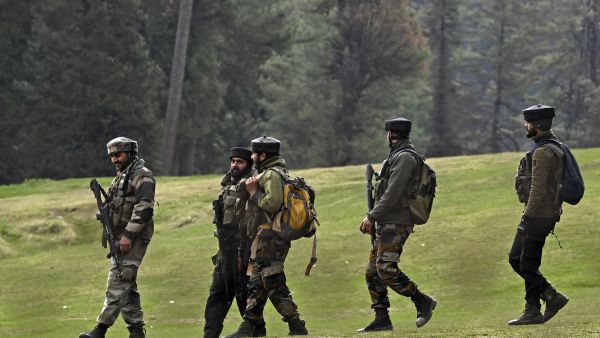ALBAWABA- India has announced it will stall the implementation of the Indus Waters Treaty with Pakistan, citing national security concerns after a deadly militant attack in the tourist town of Pahalgam in Indian-administered Kashmir.
The attack, which took place on Sunday, left 28 tourists dead and two of the assailants killed in a gun battle with security forces.
The Indian Foreign Ministry issued a statement Wednesday confirming the suspension of cooperation under the treaty, marking a significant escalation in already tense bilateral relations.
India’s Foreign Secretary Vikram Misri outlined a series of sweeping diplomatic and security actions aimed at Pakistan.
Speaking after a meeting of the Cabinet Committee on Security (CCS), Misri stated that the measures were taken in response to what India sees as Pakistan’s continued support for cross-border terrorism.
Among the most significant moves, India has suspended the Indus Waters Treaty of 1960 "with immediate effect," declaring it will remain in abeyance until Pakistan "credibly and irrevocably abjures" its backing of terrorism.
The treaty, long regarded as a rare symbol of cooperation between the two neighbors, has now become collateral in the growing confrontation.
In addition, India announced the immediate closure of the integrated checkpost at Attari. While those who crossed into India with valid documents may return through the checkpoint before May 1, 2025, the route will otherwise be shut down entirely.
New restrictions also target Pakistani nationals: all travel to India under the SAARC Visa Exemption Scheme (SVES) has been suspended.
Previously issued SVES visas to Pakistani citizens are now canceled, and anyone currently in India under such visas has been ordered to leave within 48 hours.
Diplomatic fallout has deepened further as India declared all Defence, Military, Naval, and Air Advisors in the Pakistani High Commission in New Delhi persona non grata, giving them a week to depart.
India, in turn, will withdraw its own military advisors from its High Commission in Islamabad, effectively nullifying these positions in both capitals.
The move follows a period of prolonged diplomatic strain between the two nuclear-armed neighbors, particularly after India’s 2019 revocation of Article 370, which stripped Jammu and Kashmir of its special autonomous status.
The latest attack and India’s retaliatory response by targeting a longstanding water-sharing framework further complicate the volatile relationship.
Notably, Pakistan condemned the Pahalgam incident and labeled it a "terrorist attack," distancing itself from any involvement.
Despite this, New Delhi has chosen to respond by freezing a treaty considered one of the few stable mechanisms of cooperation between the two countries.
The Indus Waters Treaty (IWT), signed in 1960, is a landmark water-sharing agreement brokered by the World Bank. It governs the use of the Indus River System, which is critical to the agriculture and water security of both nations.
Under its terms, the waters of the three eastern rivers—Ravi, Beas, and Sutlej—are allocated to India, while Pakistan receives the waters of the western rivers—Indus, Jhelum, and Chenab.
Despite multiple wars and border skirmishes, the IWT has historically endured, making it a rare symbol of continuity amid otherwise fractious ties. It has long been cited as a model for transboundary water cooperation.











